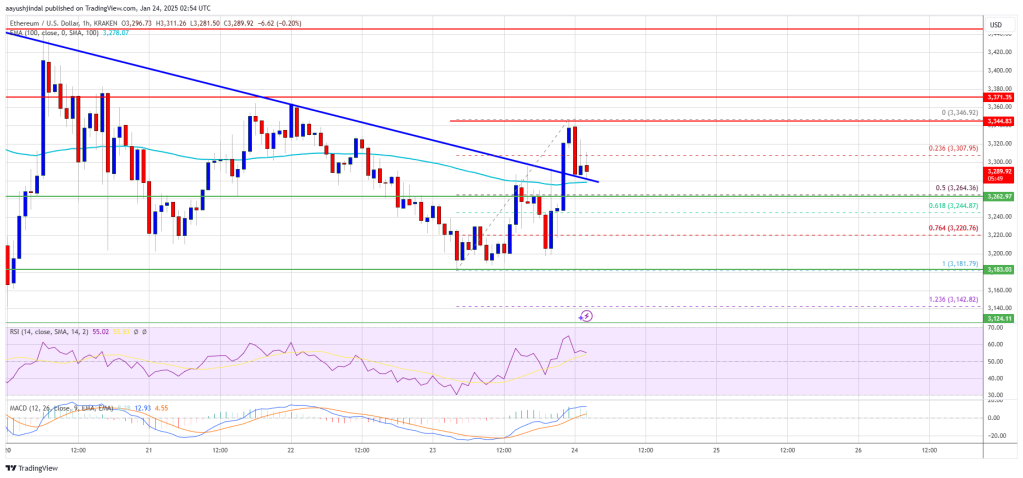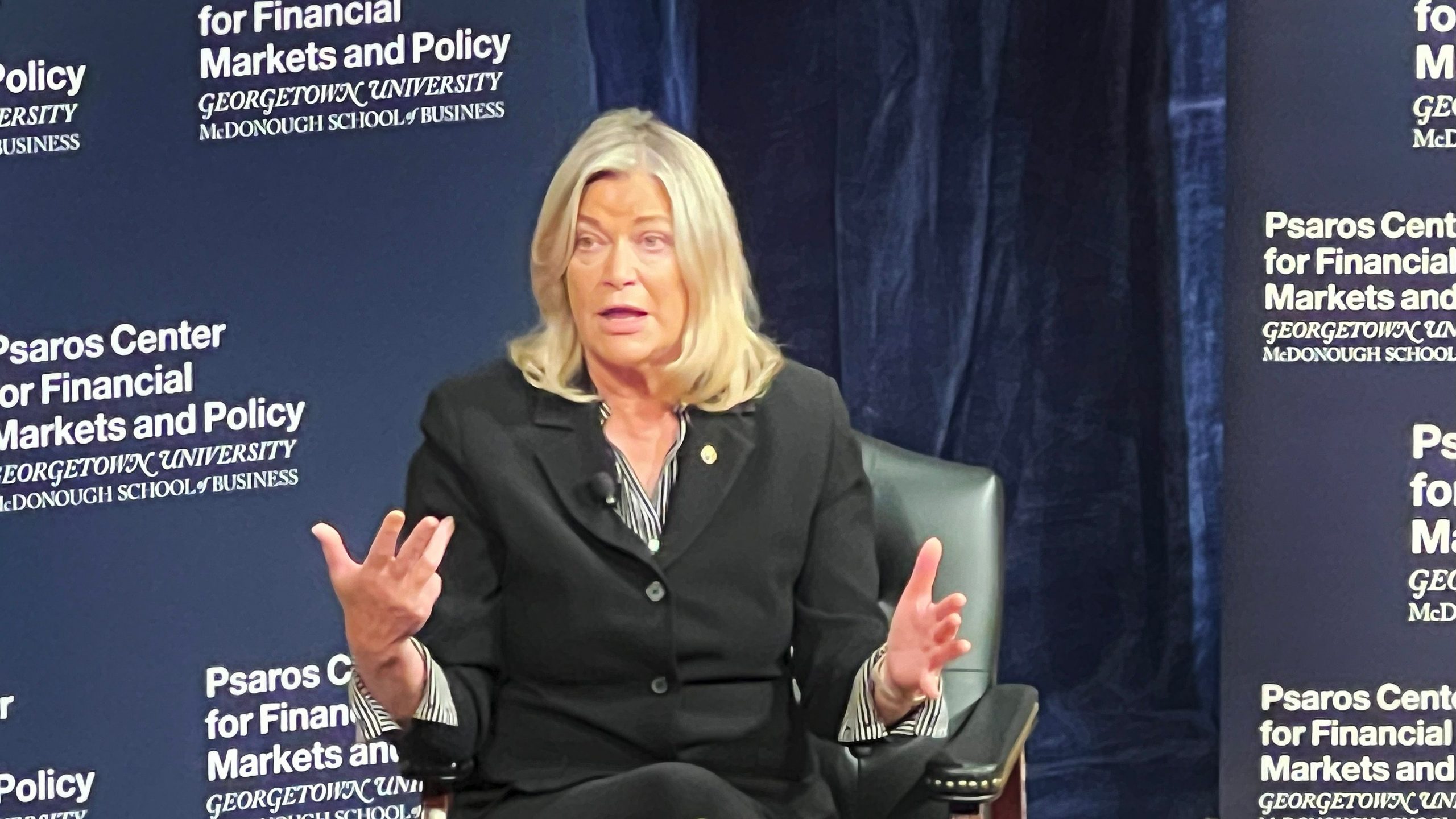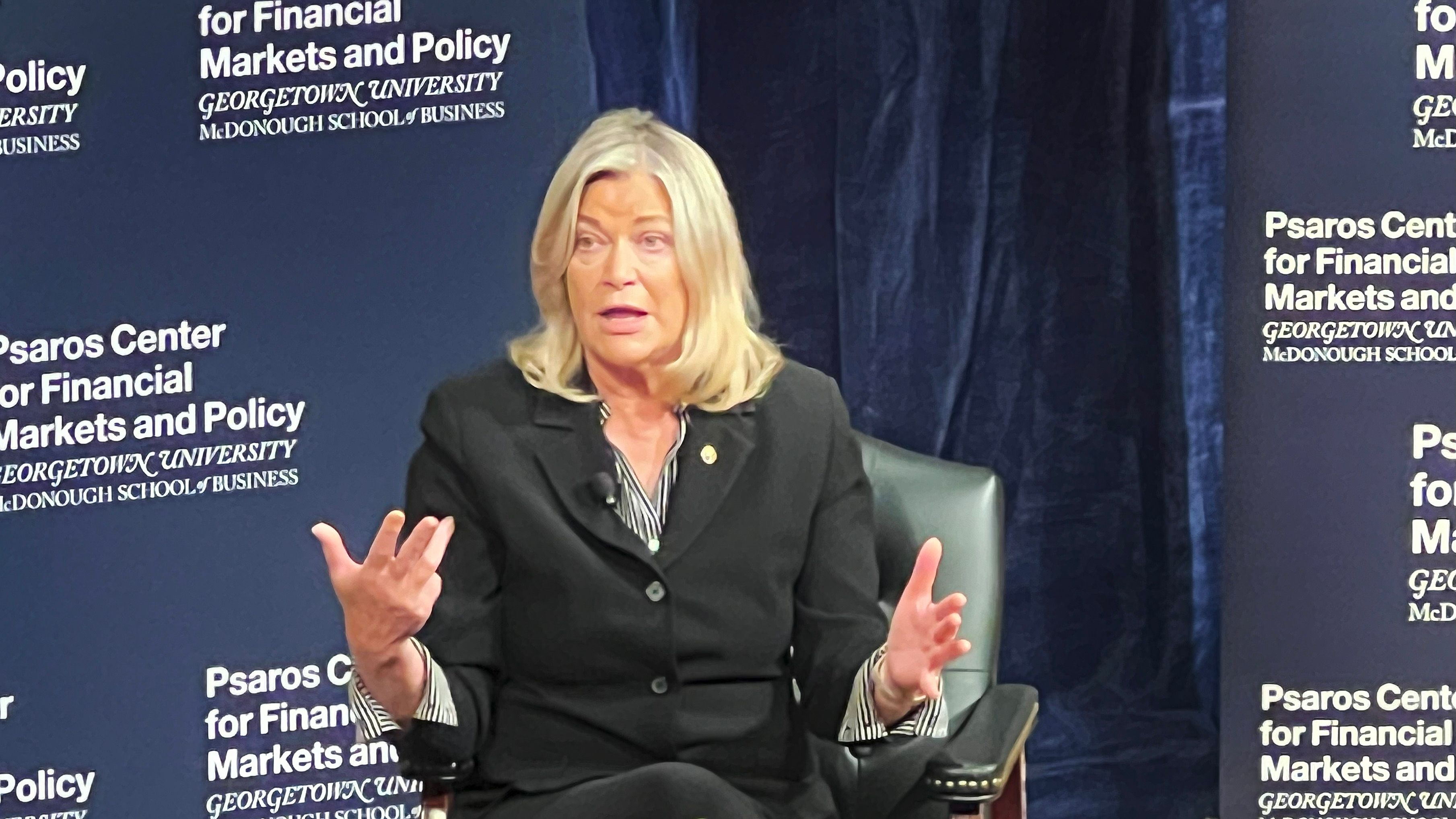CryptoCurrency
Stock market plunges below Oman and Malaysia in global IPO rankings

Britain’s stock market has seen a drop in global rankings, tumbling to 20th place worldwide, according to Bloomberg,
London has been overtaken by significantly smaller venues including Oman, whose entire stock market is just one per cent the size of Britain’s.
Companies floating in London raised $1billion (£790million) this year, down by nine per cent. It pushed Britain down by four spots in the worldwide league table for fundraising from initial public offerings (IPOs) this year.
It is now behind Malaysia and Luxembourg in the global rankings for IPOs, marking a big difference from its regular top-five placement in previous years.
The gap between London and leading markets is stark, with the US maintaining its top position after raising $40.9billion (£32million) through IPOs.
The City failed to secure any listings among the top 100 globally, falling behind markets like Greece, Sweden and South Africa.

The UK has failed to secure any listings among the top 100 globally
GETTY
Even regional competitors have surpassed London, with the UAE raising $6.2billion (£4.9billion) and Saudi Arabia securing $3.4billion (£2.7billion) in new listings.
Britain now trails behind Australia, Poland, and emerging markets that were previously far less significant in global fundraising. The market’s struggles are amplified by low valuations and growing competition from other financial centres.
George Chan, EY’s Shanghai-based global IPO leader, warned: “Governments are doing everything they could to attract more companies to come, so the competition is now more intense.
“If we do not change this sort of landscape, it’s going to take a lot of time for the UK to be back on the top of the pyramid.”
Chris Laing, HSBC Holdings Plc’s head of equity capital markets for Central and Eastern Europe, the Middle East and North Africa, noted: “London, like other European markets, faces increased competition from domestic markets in a way it did not 8-10 years ago.”
Just a dozen firms have listed in London this year, with the largest raising only £150million.
The market’s struggles have drawn criticism from major players, with Revolut’s Nikolay Storonsky stating it was “not rational” to float in London.
Britain’s most valuable fintech start-up leader pointed to stamp duty taxes as a key deterrent, claiming the UK “can’t compete” with America.
Liad Meidar of Gatemore Capital Management offered a stark assessment: “There’s a malaise in the UK – the state of capital markets is negative.”
The exodus from London’s stock market has reached a critical point, with 45 companies departing through mergers and acquisitions this year – the highest number since 2010.
Private equity firms are capitalising on the low valuations of mid-cap companies, many of which suffer from limited analyst coverage.
KKR & Co has been particularly active, completing two buyouts including Smart Metering Systems for £1.3billion and IQGeo for £333million.
Other major players like EQT AB, Brookfield Asset Management, CVC Capital Partners and Fortress Investment Group are also taking UK companies private.
UK authorities are attempting to revive the market through the biggest overhaul of listing rules in more than three decades.
The changes make it easier for companies to have two classes of stock, aiming to attract more tech listings.
A London Stock Exchange Group spokesperson remained optimistic, stating: “We are encouraged by the pipeline of companies looking to IPO and anticipate more activity following the implementation of the new listing rules.”
Alexandra Jackson, a fund manager at Rathbones Group, noted that limited fund inflows are making IPOs harder to execute.
“We need to see some animal spirits come back into the UK,” she concluded, whilst suggesting investors would back the right businesses.
CryptoCurrency
Elizabeth Warren joins call for probe of Trump over crypto tokens

Senator Elizabeth Warren said Donald Trump’s memecoin could raise “the specter of uninhibited and untraceable foreign influence over the US president.”
CryptoCurrency
Arbitrum, Avalanche, and Solana poised for big moves this year

Disclosure: This article does not represent investment advice. The content and materials featured on this page are for educational purposes only.
Arbitrum, Avalanche, and Solana are gearing up for significant moves in 2025, with the emerging meme coin Catzilla also joining the ranks.
The crypto market is showing strong signs of recovery, bringing excitement and optimism among investors. Arbitrum (ARB), Avalanche (AVAX), and Solana (SOL) are catching attention with their potential for significant moves this year. As the market shifts, these cryptocurrencies stand out as intriguing prospects, sparking curiosity about their future paths and encouraging investors to explore their potential.
Catzilla: A new era in meme coins
Catzilla, the ultimate hero in the world of DeFi, is here to take on corrupt systems and promote financial opportunities for all. With a spirit of innovation and community, Catzilla aims to bring together crypto enthusiasts, meme fans, and investors in a collective pursuit of financial growth.
The project is committed to long-term value and growth. While others may offer empty promises, Catzilla seeks to provide substantial potential with a structured presale starting at $0.0002 and progressing to $0.0016 over 14 stages. Early participants are able to grab the CATZILLA token with an 88% discount.

The CATZILLA token offers multiple utilities to enhance the crypto experience:
- Governance – Participate in shaping Catzilla’s future through community decisions.
- Incentives – Earn rewards for engagement and support.
- Staking – Hold and stake CATZILLA tokens to potentially earn passive income.
Catzilla aims to create a new environment for those eager to join a collaborative and transformative crypto community. For experienced investors, fans of memes, and those who enjoy combining fun with financial opportunities, Catzilla offers a platform where creativity meets potential.
Interested investors can be part of the CATZILLA movement via presale.
Arbitrum set for rebound
Arbitrum’s current price floats between $0.68 and $0.83 and has been falling over the last month. But with an RSI at 39.77, the coin is near oversold territory, suggesting a possible price rebound.
The nearest resistance is just over $0.91, and breaking this could push ARB toward the $1.09 level, marking a potential growth of around 30% from its current range. Although recent months have seen declines, this sets up an interesting opportunity for those expecting a turnaround. Traders are keeping an eye on the support levels, especially $0.5457, as breaking this could signal further price drops.
AVAX eyes breakout
Avalanche is currently trading between $34.71 and $42.01. The coin has been on a declining trend, with a drop of close to 10% in the past week. However, a stronger long-term picture emerges with a 22% uptick over six months.
Near-term, AVAX faces its first challenge at the resistance level of $45.75. The coin’s RSI level at 32.78 indicates it might be oversold, suggesting potential for a bounce. If momentum shifts, AVAX could break past the $45 mark and aim for the next significant level at $54.75. However, it should stay above the strong support line at $27.77 to sustain any upward move.
Solana’s path
Solana is battling within a tight price range of $213 to $294. The coin has shown promise with a 28% rise in the past month and over 33% growth in 6 months. Its nearest resistance sits at $320, a challenging but achievable target if momentum continues.
The current RSI at 38 hints at potential upward movement from an oversold position. However, surpassing the $491 mark requires more steam. Solana’s current price is below its simple moving average, but the recent month’s positive change shows potential for a surge. If Solana can break the $320 barrier, it could see a significant increase, possibly over 40%.
Conclusion
While Arbitrum, Avalanche, and Solana show promise, their short-term potential is limited. In contrast, Catzilla emerges as the ultimate meme coin hero, offering a remarkable 700% ROI during its presale. With governance features, rewards for loyalty, and staking options, it looks to unite crypto enthusiasts, meme fans, and anime lovers in the quest for financial freedom.
For more information on Catzilla, visit their website, X, or Telegram News.
Disclosure: This content is provided by a third party. crypto.news does not endorse any product mentioned on this page. Users must do their own research before taking any actions related to the company.
CryptoCurrency
XRP Price Dips Back to Support: Consolidation or Breakdown Ahead?

Aayush Jindal, a luminary in the world of financial markets, whose expertise spans over 15 illustrious years in the realms of Forex and cryptocurrency trading. Renowned for his unparalleled proficiency in providing technical analysis, Aayush is a trusted advisor and senior market expert to investors worldwide, guiding them through the intricate landscapes of modern finance with his keen insights and astute chart analysis.
From a young age, Aayush exhibited a natural aptitude for deciphering complex systems and unraveling patterns. Fueled by an insatiable curiosity for understanding market dynamics, he embarked on a journey that would lead him to become one of the foremost authorities in the fields of Forex and crypto trading. With a meticulous eye for detail and an unwavering commitment to excellence, Aayush honed his craft over the years, mastering the art of technical analysis and chart interpretation.
As a software engineer, Aayush harnesses the power of technology to optimize trading strategies and develop innovative solutions for navigating the volatile waters of financial markets. His background in software engineering has equipped him with a unique skill set, enabling him to leverage cutting-edge tools and algorithms to gain a competitive edge in an ever-evolving landscape.
In addition to his roles in finance and technology, Aayush serves as the director of a prestigious IT company, where he spearheads initiatives aimed at driving digital innovation and transformation. Under his visionary leadership, the company has flourished, cementing its position as a leader in the tech industry and paving the way for groundbreaking advancements in software development and IT solutions.
Despite his demanding professional commitments, Aayush is a firm believer in the importance of work-life balance. An avid traveler and adventurer, he finds solace in exploring new destinations, immersing himself in different cultures, and forging lasting memories along the way. Whether he’s trekking through the Himalayas, diving in the azure waters of the Maldives, or experiencing the vibrant energy of bustling metropolises, Aayush embraces every opportunity to broaden his horizons and create unforgettable experiences.
Aayush’s journey to success is marked by a relentless pursuit of excellence and a steadfast commitment to continuous learning and growth. His academic achievements are a testament to his dedication and passion for excellence, having completed his software engineering with honors and excelling in every department.
At his core, Aayush is driven by a profound passion for analyzing markets and uncovering profitable opportunities amidst volatility. Whether he’s poring over price charts, identifying key support and resistance levels, or providing insightful analysis to his clients and followers, Aayush’s unwavering dedication to his craft sets him apart as a true industry leader and a beacon of inspiration to aspiring traders around the globe.
In a world where uncertainty reigns supreme, Aayush Jindal stands as a guiding light, illuminating the path to financial success with his unparalleled expertise, unwavering integrity, and boundless enthusiasm for the markets.
CryptoCurrency
WazirX Wins Approval From Singapore Court to Repay Users Following $230M Hack


Indian cryptocurrency exchange WazirX has won approval from the Singapore High Court to restructure after the $230 million hack last year.
The High Court has allowed WazirX to convene a scheme meeting with users in a “significant step” towards distributing funds lost in the attack and reviving the platform’s operations, the exchange announced via email on Thursday.
Should the restructuring plan be approved, funds would then be distributed to creditors within 10 business days.
WazirX was hacked by attackers by the North Korean group Lazarus in July, which over 45% of the exchange’s $500 million in holdings stolen. Over the ensuing months, the hackers laundered their ill-gotten gains using privacy-focused crypto mixer Tornado Cash.
The Court has found that there was no evidence of wrongdoing by WazirX in the attack, despite suggestions from some users that WazirX’s parent company Zettai had some involvement.
Read More: More Than Half of Crypto Tokens Debuted in 2024 Were Malicious: Blockaid
CryptoCurrency
Solana Whales Are Backing CATZILLA for 10,000% Returns—Are You In?


Massive investors in Solana are turning their attention to a new asset, CATZILLA, which promises impressive gains. With the current market trend showing strong upward momentum, excitement is building over potential skyrocketing returns. This development is catching the eye of many, sparking curiosity about what could be the next big opportunity in the crypto world.
Catzilla: Roaring Into the Meme Coin Arena With Unmatched Profit Potential
In the ever-evolving world of meme coins, new contenders constantly emerge, and Catzilla is positioning itself as an ambitious player. Drawing inspiration from successful tokens like Dogecoin (DOGE), Shiba Inu (SHIB), and PEPE, Catzilla aims to blend viral meme culture with significant financial growth. What sets Catzilla apart is its unique storytelling—a giant, Godzilla-like cat wreaking havoc, which taps into the chaotic energy of Japanese kaiju culture. This game-based narrative not only engages gamers but attracts crypto investors looking for the next big thing.
With a fiery combination of anime-inspired chaos and a rebellious mission, Catzilla is rallying crypto enthusiasts and cat lovers, and anime fans to join its movement for a more equitable, decentralized crypto space.
💣Catzilla is Ready to Disrupt the Market! 💣
Unlike many meme coins that burn bright and fade away, Catzilla is here for the long haul, offering investors real potential with a massive 700% ROI. Catzilla’s presale offers a 14-stage process, giving investors multiple opportunities to buy in early. With each stage, the token price gradually rises.
⚡Unlock Triple Value for Maximum Gains⚡
Catzilla operates on a threefold value proposition: epic gameplay, a unifying mission, and a vibrant community. Players can enjoy a thrilling game experience while earning rewards, all while being part of a growing movement that merges the fun of meme culture with the potential for financial freedom.
🚀 Join the Catzilla Revolution 🚀
Catzilla positions itself as a symbol of resistance against the greed and manipulation often seen in the crypto world. By embracing its bold and monstrous persona, Catzilla seeks to restore the playful, decentralized nature of meme coins while ensuring a fair and transparent ecosystem for its users.
Join the Feline Frenzy! $CATZILLA Is on the Rise—Claim Your Share Today!
Solana: Scalability and Performance in Blockchain
Solana is a blockchain platform that focuses on scalability and speed. It supports decentralized applications (dapps) and competes with others like Ethereum. Solana’s architecture allows for quicker transactions using a system that avoids sharding. This attracts many developers and investors. SOL is the native cryptocurrency of Solana. It is used for transactions, running programs, and as rewards for network participants. The coin is key to the ecosystem’s function, offering access to various projects. Its unique approach makes it attractive, especially for high-activity services. In the current market, Solana’s scalability and potential for hosting innovative products enhance its appeal.
Conclusion
While coins like SOL may offer less short-term potential, Catzilla stands out as the ultimate meme coin hero aiming to bring financial freedom to everyone. With a remarkable 700% ROI during its presale and triple utility features, it invites crypto enthusiasts to join the fight against crypto villains and achieve new heights together.
Site: Catzilla ($CATZILLA)
Twitter: https://x.com/CatzillaToken
Telegram: Telegram Chat
Disclaimer: This is a sponsored press release and is for informational purposes only. It does not reflect the views of Crypto Daily, nor is it intended to be used as legal, tax, investment, or financial advice.
CryptoCurrency
Jump Trading accuses ex-engineer of stealing IP for rival startup

Jump Trading has sued a former employee, claiming he stole the crypto firm’s intellectual property to help start a rival blockchain company.
CryptoCurrency
Lightchain AI crypto presale hits $12m, poised to lead the bull run with XRP and Cardano


Disclosure: This article does not represent investment advice. The content and materials featured on this page are for educational purposes only.
Lightchain AI presale hits $12m, positioning it alongside XRP and Cardano for the next bull run.
The crypto market is buzzing as Lightchain AI’s presale surpasses the $12 million mark, with its token price now at $0.005625. This impressive milestone highlights the growing confidence in the platform’s innovative blockchain solutions.
Alongside established players like XRP and Cardano, Lightchain AI is positioned to play a leading role in the next bull run, attracting investors seeking transformative growth and technological innovation.
XRP: driving adoption through payment solutions
XRP, developed by Ripple Labs, is increasingly being adopted for its efficient cross-border payment solutions.
The token facilitates near-instantaneous transactions with minimal fees, making it an attractive option for financial institutions and businesses worldwide. Notably, Bank of America has announced plans to utilize XRP exclusively for internal transactions, underscoring its confidence in Ripple’s blockchain technology.
Additionally, Ripple’s recent approval from the New York Department of Financial Services to launch the RLUSD stablecoin is expected to enhance its digital payment platform, potentially increasing XRP’s value. As of January 21, 2025, XRP is trading at $3.14, reflecting its growing adoption and the broader cryptocurrency market’s upward trend.
Cardano: Leader in blockchain sustainability
Cardano has established itself as a leader in blockchain sustainability through its energy-efficient proof-of-stake (PoS) consensus mechanism, Ouroboros, which significantly reduces energy consumption compared to traditional proof-of-work systems.
A recent assessment by the Crypto Carbon Ratings Institute (CCRI) reported that, as of May 2024, the Cardano network’s annual electricity consumption was approximately 704.91 MWh, resulting in a carbon footprint of 250.73 tCO₂e.
This efficiency aligns with the European Union’s Markets in Crypto-Assets (MiCA) regulations, underscoring Cardano’s commitment to environmental responsibility. Additionally, the Cardano Foundation has partnered with veritree to enhance transparency in reforestation efforts, utilizing blockchain technology to verify and record tree-planting activities, thereby combating greenwashing and supporting global sustainability initiatives.
Lightchain AI: Merging AI and blockchain for real-world impact
Lightchain AI stands out for its ability to seamlessly integrate artificial intelligence into blockchain technology.
One of its key innovations is the Artificial Intelligence Virtual Machine (AIVM), a computational layer designed to handle AI-specific tasks such as model training, inference, and optimization. This feature empowers developers to create advanced decentralized applications (dApps) that leverage AI for decision-making and problem-solving.
The platform’s emphasis on collaborative ecosystem development fosters innovation by allowing developers to contribute directly to the network. With plans to expand its adoption across industries such as logistics, energy, and beyond, Lightchain AI is creating a versatile framework that appeals to both enterprises and developers.
To learn more about Lightchain AI, visit the website, X, and Telegram.
Disclosure: This content is provided by a third party. crypto.news does not endorse any product mentioned on this page. Users must do their own research before taking any actions related to the company.
CryptoCurrency
What the Signs Say About Its Next Move

Ethereum price is consolidating above the $3,180 support. ETH must clear the $3,350 resistance zone to start a fresh increase in the near term.
- Ethereum started a fresh increase from the $3,180 support zone.
- The price is trading above $3,250 and the 100-hourly Simple Moving Average.
- There was a break above a key bearish trend line with resistance at $3,280 on the hourly chart of ETH/USD (data feed via Kraken).
- The pair could start another increase if it stays above the $3,220 support level.
Ethereum Price Breaks Resistance
Ethereum price started a decent upward move from the $3,180 level, beating Bitcoin. ETH was able to surpass the $3,220 and $3,250 resistance levels.
There was a break above a key bearish trend line with resistance at $3,280 on the hourly chart of ETH/USD. The pair even surpassed $3,300 and tested $3,350. A high was formed at $3,346 and the price is now moving lower. There was a move below the $3,320 and $3,300 support levels.
The price dipped below the 23.6% Fib retracement level of the upward move from the $3,181 swing low to the $3,346 high. Ethereum price is now trading above $3,250 and the 100-hourly Simple Moving Average.
On the upside, the price seems to be facing hurdles near the $3,350 level. The first major resistance is near the $3,370 level. The main resistance is now forming near $3,450.

A clear move above the $3,450 resistance might send the price toward the $3,500 resistance. An upside break above the $3,500 resistance might call for more gains in the coming sessions. In the stated case, Ether could rise toward the $3,550 resistance zone or even $3,580 in the near term.
Another Decline In ETH?
If Ethereum fails to clear the $3,350 resistance, it could start another decline. Initial support on the downside is near the $3,260 level. The first major support sits near the $3,220.
A clear move below the $3,220 support might push the price toward the $3,180 support. Any more losses might send the price toward the $3,120 support level in the near term. The next key support sits at $3,050.
Technical Indicators
Hourly MACD – The MACD for ETH/USD is gaining momentum in the bullish zone.
Hourly RSI – The RSI for ETH/USD is now above the 50 zone.
Major Support Level – $3,250
Major Resistance Level – $3,350
CryptoCurrency
Lummis to Lead Crypto-Vital U.S. Senate Panel With Digital Assets Industry Defenders


The U.S. Senate Banking Committee has officially set its roster for the new digital assets committee, putting Senator Cynthia Lummis at the top, as expected. But it also includes two names that received heavy backing from the crypto political action committee Fairshake in the 2024 elections.
New Senator Bernie Moreno, the Ohio blockchain entrepreneur who knocked off former Democratic Chairman Sherrod Brown, is among the panel’s five Republicans. The crypto super PAC devoted a towering $40 million to back Moreno in that contest.
And among the four Democrats, the ranking senator is Arizona Democrat Ruben Gallego, who received about $10 million in ad support from Fairshake.
The subcommittee is likely to represent the tip of the spear for crypto legislation in this session of Congress. The House of Representatives had been far ahead of the Senate last year in approving digital assets measures, but the Senate Banking Committee led by Brown had resisted taking up the bills.
With the new subcommittee in place, led by Wyoming Republican Lummis, the industry is likely to soon take up bills. Lummis has authored a few herself in previous sessions.
CryptoCurrency
Debifi and Berglinde Join Forces to Redefine Bitcoin-Backed Fiat Lending with Loans in USD, EUR, and CHF


[Lugano, January 23, 2025] – Debifi, the leading platform in non-custodial Bitcoin-backed lending, has announced a strategic partnership with Berglinde, a recognized innovator in Bitcoin-centered investment solutions. This alliance signifies a major step in connecting the traditional financial landscape with the Bitcoin economy. Together, they will offer fiat loans in USD, EUR, and CHF, providing users with expanded financial options while safeguarding their Bitcoin holdings.
United by a Commitment to Financial Empowerment
This collaboration unites two forward-thinking firms driven by a mission to enable financial sovereignty. By merging Debifi’s pioneering lending infrastructure with Berglinde’s regulatory expertise, they aim to create a dynamic ecosystem that underscores Bitcoin’s role as a premier global asset for collateralization.
Why This Partnership Changes the Game
Opening Institutional Liquidity Channels
Debifi’s secure, non-custodial, multisig lending system will integrate with Berglinde’s regulated financial frameworks, unlocking institutional liquidity for Bitcoin-backed loans. This synergy ensures a secure and transparent gateway for capital flows.
Elevating Bitcoin’s Position in Global Markets
By leveraging Berglinde’s expertise in compliance and investment management, this partnership supports Debifi’s mission to scale globally, allowing Bitcoin to penetrate deeper into capital markets and diversify its utility.
Setting a Benchmark for Lending Excellence
The partnership is dedicated to establishing a gold standard in Bitcoin-backed lending. Their approach emphasizes security, transparency, and non-rehypothecation practices, reinforcing Bitcoin’s reputation as “super collateral” for both traditional and decentralized financial systems.
This collaboration highlights how the convergence of visionary companies can expand the potential of Bitcoin as a transformative force in global finance.
Comments from Leadership
Max Keidun, CEO of Debifi:”The partnership with Berglinde marks a significant milestone for Debifi, as it unlocks seamless fiat loan access for our platform users. By combining Bitcoin’s unmatched value as collateral with Berglinde’s financial expertise, we’re bridging the gap between Bitcoin economy and traditional finance, creating unparalleled opportunities for our users. Berglinde is one of the first fiat lenders on our platform, and we’re excited to announce more partnerships in the coming months.”
Phil Lojacono, Co-Founder of Berglinde:“Our mission at Berglinde has always been to drive innovation at the intersection of Bitcoin and traditional finance. Debifi’s groundbreaking approach to Bitcoin lending aligns perfectly with our vision of empowering institutions to invest in Bitcoin with confidence and integrity. This partnership sets the stage for a prosperous Bitcoin economy.”
About Debifi
Debifi is a non-custodial lending platform designed to unlock Bitcoin’s potential as a superior collateral asset. Through secure multisig escrow and no-rehypothecation lending, Debifi offers individuals and institutions unmatched borrowing solutions.
About Berglinde
Berglinde bridges traditional finance and the Bitcoin economy, offering secure, regulated, and innovative investment opportunities. The firm is committed to empowering institutions to embrace Bitcoin and its transformative potential.
For more information, visit Debifi.com and Berglinde.com.
Debifi social media: https://x.com/debificom and https://linkedin.com/company/debifi
Disclaimer: This is a sponsored press release and is for informational purposes only. It does not reflect the views of Crypto Daily, nor is it intended to be used as legal, tax, investment, or financial advice.
-

 Fashion8 years ago
Fashion8 years agoThese ’90s fashion trends are making a comeback in 2025
-

 Entertainment8 years ago
Entertainment8 years agoThe Season 9 ‘ Game of Thrones’ is here.
-

 Fashion8 years ago
Fashion8 years ago9 spring/summer 2025 fashion trends to know for next season
-

 Entertainment8 years ago
Entertainment8 years agoThe old and New Edition cast comes together to perform You’re Not My Kind of Girl.
-

 Sports8 years ago
Sports8 years agoEthical Hacker: “I’ll Show You Why Google Has Just Shut Down Their Quantum Chip”
-
Business8 years ago
Uber and Lyft are finally available in all of New York State
-
Entertainment8 years ago
Disney’s live-action Aladdin finally finds its stars
-
Sports8 years ago
Steph Curry finally got the contract he deserves from the Warriors
-
Entertainment8 years ago
Mod turns ‘Counter-Strike’ into a ‘Tekken’ clone with fighting chickens
-
Fashion8 years ago
Your comprehensive guide to this fall’s biggest trends




You must be logged in to post a comment Login